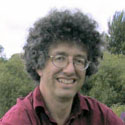Academic Editors
The following people constitute the Editorial Board of Academic Editors for PeerJ. These active academics are the Editors who seek peer reviewers, evaluate their responses, and make editorial decisions on each submission to the journal. Learn more about becoming an Editor.

Neil Harrison
I am an Associate Professor in the Department of Psychology at Liverpool Hope University. My research focuses on the study of visual perception and emotional influences on perception. One line of my research aims to further our understanding of how the brain processes emotional stimuli. In particular, I use event-related potentials (ERPs) to investigate how expectations and uncertainty influence emotion processing, and how emotion regulation techniques modify neural activity. Another line of research is aesthetics, where I investigate eye movements by viewers in natural settings (e.g. in a gallery), and how these are influenced by personality. I also investigate aesthetic evaluations of nature, including the effects of connectedness to nature and mindfulness on aesthetic experiences.

Andree Hartanto
Andree Hartanto is an Associate Professor of Psychology from Singapore Management University. His research focuses on examining factors that contribute to interindividual variations and intraindividual changes in cognitive, emotional, and physical well-being. Andree’s work has been published in more than 100 peer-reviewed journal articles such as Cognition, Child Development, Journal of Experimental Psychology: General, Emotion, and Social Science & Medicine.

Martin Hartmann
Senior Researcher at ETH Zurich with strong interests in microbial ecology, molecular biology, bioinformatics and statistics.
Erik K Hartmann
Dr. Erik Hartmann is a Senior Physican within the Department of Anaesthesiology, Univesity Medical Center Mainz, Germany. His research focus is on large animal models, ARDS and CPR.

Thomas Hartung
Professor of Toxicology (Chair for Evidence-based Toxicology), Pharmacology, Molecular Microbiology and Immunology at Johns Hopkins Bloomberg School of Public Health, Baltimore, and University of Konstanz, Germany; Director of their Centers for Alternatives to Animal Testing (CAAT). Former Head of the European Center for the Validation of Alternative Methods (ECVAM), Ispra, Italy.

Naoto Haruyama
Associate professor, Section of Orthodontics and Dentofacial Orthopedics, Faculty of Dental Science, Kyushu University, Japan.
Received his D.D.S (1998) and Ph.D. (2002) in Dentistry from Tohoku University, Japan.
Postdoc at NIDCR/NIH in the U.S. from 2004-2007.
Physician Scientist for patients with cleft lip/palate and/or other congenital anomalies.
Research: biomineralization, extracellular matrix proteins in teeth, tooth movement, and congenital anomalies.

Hatice Gökçe Hasanhocaoğlu
After graduating from Food Engineering, I completed my M.Sc and Ph.D in seafood processing technology. Finished my doctoral thesis titled as "Effect Of Some Microbiological Metabolites On Specific Spoilage Microorganisms In Gilthead Sea Bream (Sparus aurata), And Their Usage Potential In Cold Storage" in 2020. My studies focus on important microorganisms in food technology.

Quamarul Hassan
Dr. Quamarul Hassan is a Professor within the School of Dentistry/Cell Developmental and Integrative Biology at the University of Alabama, Birmingham.
While I was a master's student at Indian Veterinary Research Institute, I became fascinated with monoclonal antibody gene diversity theory. It was 1987 when Susumu Tonegawa won the Nobel Prize for his discovery of V(D)J recombination. I mostly credited him for inspiring my interest in molecular and cellular biology.
I have a long-standing interest in the genetic, epigenetic, and non-coding RNA mediated mechanisms regulating skeletal development and maintenance, specifically the functional role of miRNAs, lncRNAs, and chromatin regulation and their significance linked to gene regulation. During the last 20 years, I have developed highly effective ex vivo and in vivo strategies, including novel methods and genetic mouse models for studying bone tissue-specific-chromatin organization and modifications, miRNA, and LncRNA function. These models and strategies allow us to unravel the fundamental basis of tissue-specific gene activation and repression. Previously, my research has identified HOX transcription factor switching is critical for bone formation and homeostasis. The novel concept of epigenetic bookmarking of genes allows a cell to retain a “memory bank” for osteoblast lineage. In 2010, my research on the non-coding miRNA 23a-cluster revealed the microRNA-epigenetic regulatory mechanism critical for bone mass maintenance. I believe that my contribution will significantly advance the understanding of the genetic and epigenetic basis of skeletogenesis. Further, these conceptual understandings will likely inform novel therapeutics for bone regeneration, skeletal disorders, consumptive hypothyroidism, and osteosarcoma.

Alan Hastings
Distinguished Professor of Environmental Science and Policy. Fellow of the American Academy of Arts and Sciences. Former President of the Society for Mathematical Biology and Editor of the Encyclopedia of Theoretical Ecology.

Jari K Haukka
8/2009 -present Senior Lecturer, University of Helsinki
4/2011 - 1/2017 Chief Science Officer, Chair of the Board, EPID Research Oy
4/2010 - present Member of National Subcommittee on Medical Research Ethics
4/2010 - 3/2011 Chief Executive Officer, EPID Research Oy
10/1988 - 11/2016 Senior Scientist, The National Institute of Health and Welfare, Finland
5/2008 - 5/2009 Scientist, Team leader, International Agency for Researcher on Cancer (WHO/IARC), Lyon France
1/2008 - 8/2008 Professor of biometry, University of Tampere
2006 - 2007 Senior Scientist, National Institute of Public Health, Finland
2005 Team Leader, Epidemiologist, Geneos Oy
2003 - 2005 Head, Finnish Information Centre for Register Research
1999 - 2003 Senior Scientist, National Institute of Public Health
1988 - 1999 Senior Scientist, Statistician, National Institute of Public Health
1985 - 1988 Soil Biologist, MTT Agrifood Research Finland, Jokioinen
1985 - 1986 Programmer, MTT Agrifood Research Finland

Ziarih Hawi
Dr Ziarih Hawi is a Senior Research Fellow in Psychiatric Genetics at the Institute of Cognitive and Clinical Neuroscience. Dr Hawi has been investigating genetic predisposition to psychiatric disorders with particular emphasis on the genetic of attention deficit hyperactivity disorder (ADHD). He has successfully identified risk gens for ADHD, narrowed down regions of associations and has functionally characterised some of the ADHD-associated genes.

Karmella A Haynes
Karmella Haynes is an assistant professor at Arizona State University’s School of Biological and Health Systems Engineering and judge emeritus for the International Genetically Engineered Machines Competition. Her work with Davidson College students on bacterial computers was featured on NPR's Science Friday and was recognized as "Publication of the Year" in 2008 by the Journal of Biological Engineering. Her research aims to regulate therapeutic genes by engineering human chromosomes.

